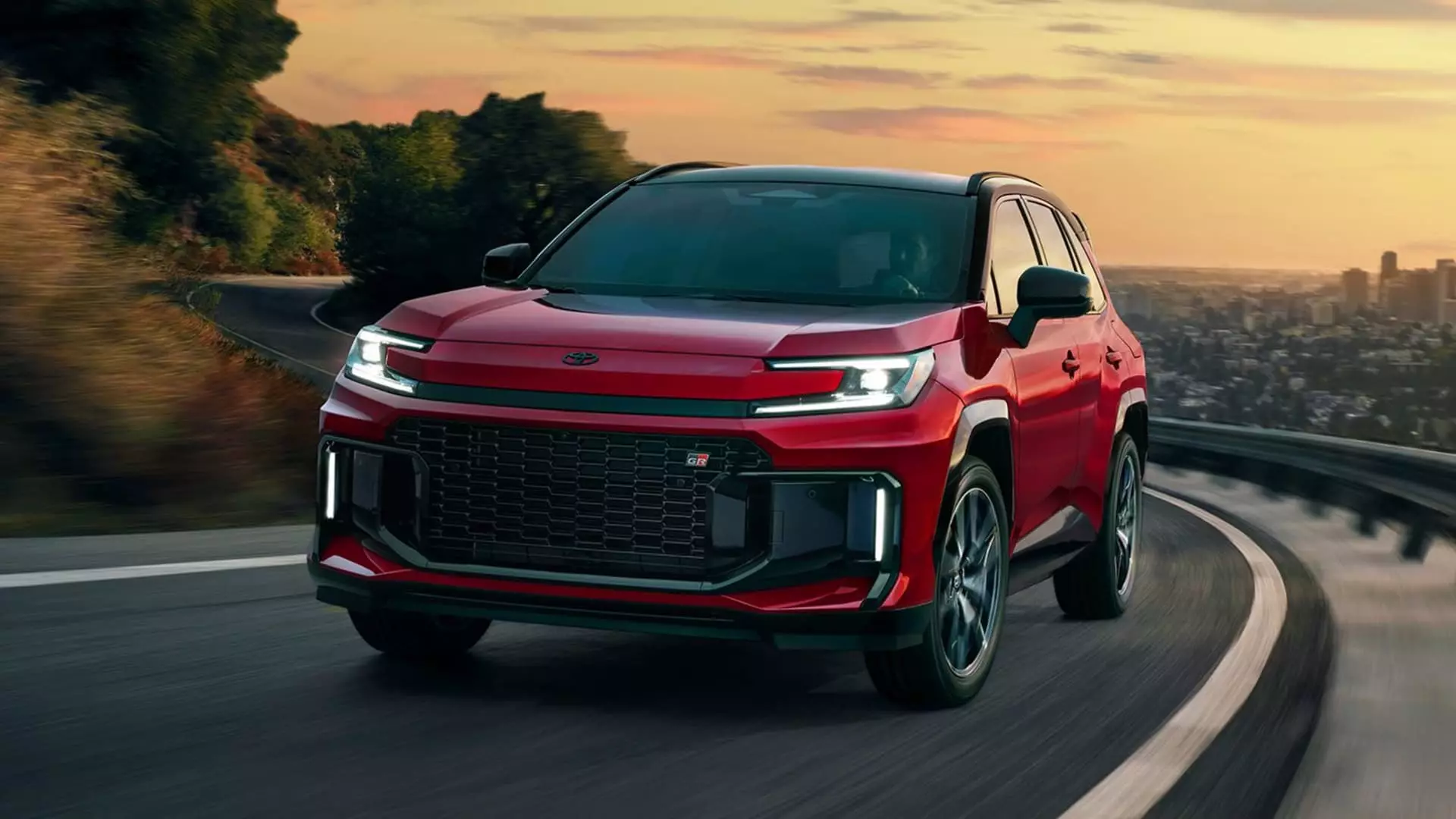The automotive industry is in the throes of a significant transformation as traditional petrol-driven vehicles face the growing tide of electric alternatives. Among the most notable players is Toyota, a company that has long championed hybrid technology and now is stepping into a new era with its iconic RAV4. The decision to solely offer the 2026 RAV4 as a hybrid or plug-in variant not only reflects market demand but also positions Toyota as a leader in the future of sustainable transport. Here, I’ll explore the implications of this bold move and why hybrid models will play a critical role in reshaping consumer expectations.
Embracing Hybrid Technology: A Strategic Choice
Mark my words: shifting the RAV4 lineup to exclusive hybrid offerings is not just a strategic decision; it’s a declaration of independence from outdated combustion models. With a commendable 44% of last year’s RAV4 sales attributed to hybrids, it’s evident that consumers are voting with their wallets. David Christ, head of Toyota’s North American division, articulated this shift perfectly, noting that customer demand for hybrid models is “faster turning.”
This is not merely about building a car; it’s about creating a lifestyle choice that aligns with contemporary values surrounding sustainability. Toyota’s decision exemplifies not only an awareness of changing consumer preferences but also underscores a commitment to reducing carbon footprints, a vital pledge in our age of climate consciousness.
The Growing Popularity of Hybrids
While the push for all-electric vehicles has garnered significant media attention, the reality is that many consumers remain skeptical and apprehensive about transitioning to fully electric models. Adoption rates of electric vehicles have lagged, overshadowing the remarkable success of hybrid technology. With 20% of new car and truck sales in the U.S. attributed to electrified vehicles (including hybrids), it’s clear that hybrids serve as both a bridge and a solution.
Among Toyota’s offerings, the RAV4 stands as a prime example. The increase in hybrid sales by 29.3% last year demonstrates a growing acceptance and desire for hybrids among consumers. The all-hybrid RAV4 not only provides increased fuel economy but also equates to a versatile driving experience that many consumers desire. It seamlessly marries two worlds, enhancing performance without sacrificing practicality.
Performance and Demand: A Match Made in Heaven
Opting for a hybrid vehicle often comes with the misconception of sacrificing performance. Yet, Toyota is shattering this stereotype with its RAV4 redesign. Featuring a robust 2.5-liter four-cylinder engine embedded with hybrid technology, the vehicle promises enhanced responsiveness and efficiency without the common drawbacks associated with electric-only models, such as range anxiety.
Moreover, as hybrid sales have surged, Toyota finds itself in an advantageous position to cater to a market craving performance-balanced vehicles. By becoming the eighth model in Toyota’s lineup to embrace hybrid exclusivity, the RAV4 is not simply keeping pace; it’s setting the benchmark that other automakers will have to chase.
The Economics of Electrification
Another crucial aspect to consider is the economic future of the automotive market underpinned by rising tariffs and global supply chain instability. Toyota’s decision to manufacture more RAV4s in the U.S. reflects a strategic response to the high tariffs imposed on imported vehicles. With nearly 84.3% of RAV4 models coming from outside the country, the shift to greater domestic production is not merely about numbers; it’s survival and adapting to an ever-changing landscape.
In these turbulent times, creating a solid manufacturing base on American soil will not only address financial concerns but also help mitigate supply chain vulnerabilities. This strategic pivot bolsters the case for hybrid technology—producing vehicles domestically is a win-win when you consider the cost-effectiveness of leveraging hybrid models.
Market Competition and Consumer Choice
As the RAV4 hybrid comes to dominate the SUV market, it sets a challenging precedent for oncoming competitors. With the auto industry witnessing a seismic shift, brands focused solely on electric vehicles must rapidly adjust. While companies like Ford are staking their claims in the EV realm, the growing consumer acceptance of hybrids gives Toyota an edge in maintaining market share and loyalty.
Ultimately, the RAV4’s hybrid-only iteration is a fearless step into the future, made timely and relevant by current consumer sentiments. It acknowledges not just the facts but the feelings of the buyers who want sustainable but reliable options.
In navigating the complexities of modern automotive demands, Toyota’s commitment to hybrid technology is an admirable vision, one that should be emulated by other automakers. The all-hybrid future of the RAV4 is not merely a strategic choice; it’s a beacon of innovation that addresses the real needs and preferences of today’s car buyers.


Leave a Reply